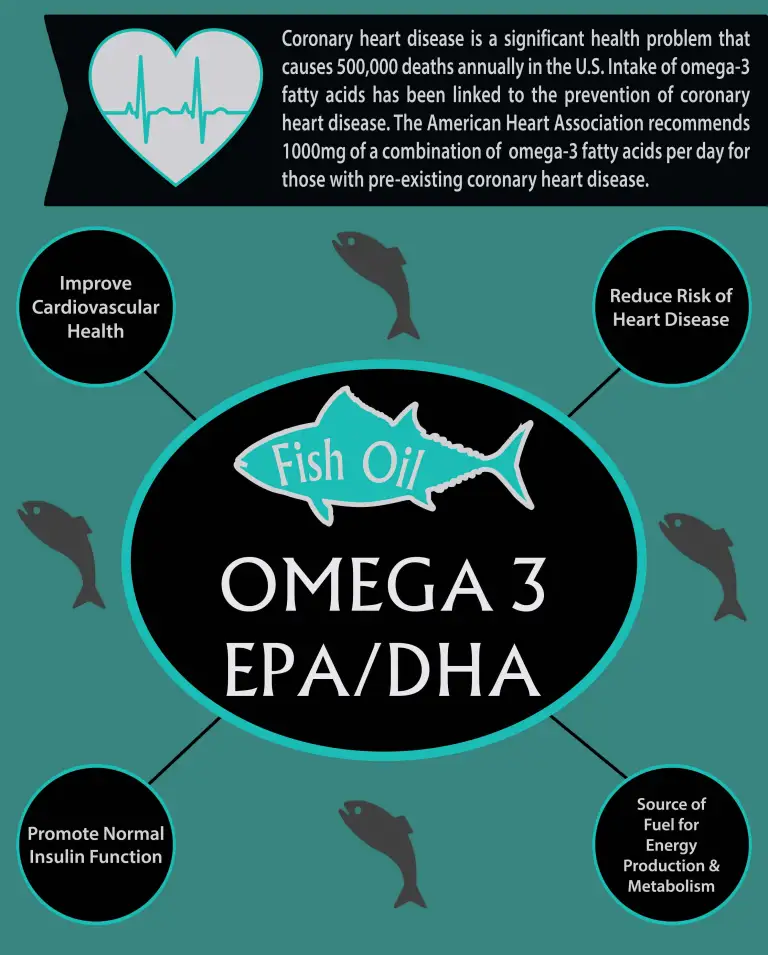Article Written By: Roger Wright
There are many health benefits associated with taking fish oil supplements. Fish oil is rich in omega-3 fatty acids, which are beneficial for heart health, cognitive function, and more. In this blog post, we’ll explore the various health benefits of fish oil supplements and why they’re worth considering as part of your healthy lifestyle.
What are fish oil supplements and what do they do for your health?
Fish oil supplements are dietary supplements made from fish sources that provide the body with omega-3 fatty acids. These essential fats are beneficial for your overall health, especially when it comes to supporting cardiovascular function, joint health, and brain function.
Studies have shown that regular consumption of fish oil can support normal blood pressure levels and reduce triglyceride levels in the blood, as well as help maintain healthy lipid levels. Additionally, they also contain anti-inflammatory properties that can promote skin and eye health, boost immunity and reduce inflammation within the body.
Most people should be able to benefit from taking a daily fish oil supplement since it’s an easy way to do for their body without any major lifestyle changes.
Benefits of taking fish oil supplements
Fish oil supplements are a great way to improve overall health and wellness. The omega-3 fatty acids in fish oil can help reduce inflammation, improve mental acuity and increase weight loss.
Additionally, the EPA and DHA in fish oil may help protect against certain diseases and ailments such as heart disease, asthma, diabetes, Alzheimer’s disease, cancer, and depression. Fish oil also helps keep cholesterol levels balanced, making it one of the best weight loss supplements available.

Taking regular doses of fish oil has been linked to improved sleep patterns, improved digestion, and even weight maintenance. Ultimately, adding fish oil supplements to your healthcare regimen is a great way to give your body the nutrients it needs for better health.
How to take fish oil supplements

Fish oil supplements are a great way to add essential omega-3 fatty acids to your daily diet. Although there are many types of fish oil supplements, they all typically come as either capsules or liquids that can be swallowed.
When taking fish oil, it is important to pay attention to the instructions on the label, as some may call for divided doses (such as one first thing in the morning and one at bedtime) and some may advise taking it with food for optimal absorption.
It is also beneficial to consult with a healthcare professional before starting a new supplement routine, particularly if you’re already taking other medications. By following these simple steps, you can enjoy the powerful benefits that fish oil has to offer!
Are there any side effects to taking fish oil supplements?
Fish oil supplements may have a few side effects, depending on the dosage and type of supplement. Gastrointestinal issues such as heartburn, nausea, and diarrhea can develop when taking fish oil supplements. Some people are allergic to certain types of fish oil, which can result in rashes or hives, itching, a swollen mouth or tongue and other potentially serious reactions.
Other potential side effects include bad breath and belching. If someone experiences any of these symptoms while taking a fish oil supplement, they should talk with their doctor about stopping the supplement and possible alternatives.
Where to find high-quality fish oil supplements
If you’re looking for high-quality fish oil supplements, it’s important to know what to look for. Start by making sure that the supplement comes from a reputable and trusted source. Check the product label to ensure that it includes the right combination of EPA and DHA fatty acids, two of the most important omega-3s found in fish oil.
Finally, read reviews from other customers and look out for any potential red flags, such as overly exaggerated health claims or negative consumer experiences. With careful research and consideration, you’ll be able to find a high-quality fish oil supplement that meets your needs.
FAQs about taking fish oil supplements
Fish oil supplements can offer significant health benefits, but deciding which supplement is right for you can be confusing. That’s why it pays to do some research on the subject and get informed about key FAQs surrounding fish oil supplementation.
How much fish oil should I take?
Generally, most adults are advised to take 1 to 3g of fish oil per day. Many manufacturers offer different dosage formulations and supplements vary in the amount of omega-3 fatty acids they contain.
It’s important to read the supplement label to understand exactly how much EPA and DHA is contained within each serving size as these are the two active ingredients contained in fish oil.
Additionally, consult a health care practitioner to get personalized advice on the recommended daily dosage as this can depend on a variety of factors such as age, health goals, dietary needs, and medical history.
What form of fish oil is best absorbed?
The best type of fish oil for optimal absorption is one that contains triglycerides (TG) as its primary source of fatty acid. Studies have shown that this form of fish oil can offer higher bioavailability, which means it can be readily used by the body and easily digested.
With TG-formulated fish oils, the body will also enjoy a greater amount of omega-3 fatty acids to promote better overall health. So if you’re looking to get maximum absorption from fish oil supplements, make sure you choose the TG variety for optimal benefits.
Should I avoid taking a fish oil supplement that has added flavorings or preservatives?
Deciding whether to take a fish oil supplement with added flavorings or preservatives is an important decision. Without these extra ingredients, the supplement itself may be quite unpleasant to consume due to its naturally oily or fishy taste and smell.
However, some studies have suggested that certain food additives and preservatives can occasionally have negative long-term effects on health.
After researching the potential risks and benefits associated with your particular fish oil supplement, it may be wise to consult with a trusted doctor to make sure you are making an informed decision about your health.
While a flavored or preserved fish oil supplement may offer some short-term convenience, it is important to consider any possible consequences before ingesting it regularly.
In Conclusion
Fish oil supplements offer a host of health benefits, from improving heart and brain health to reducing inflammation. If you’re looking to add fish oil to your supplement regimen, it’s important to choose a high-quality product and take it as directed. Be sure to talk to your doctor before taking any new supplements, including fish oil, to ensure it’s the right choice for you.

